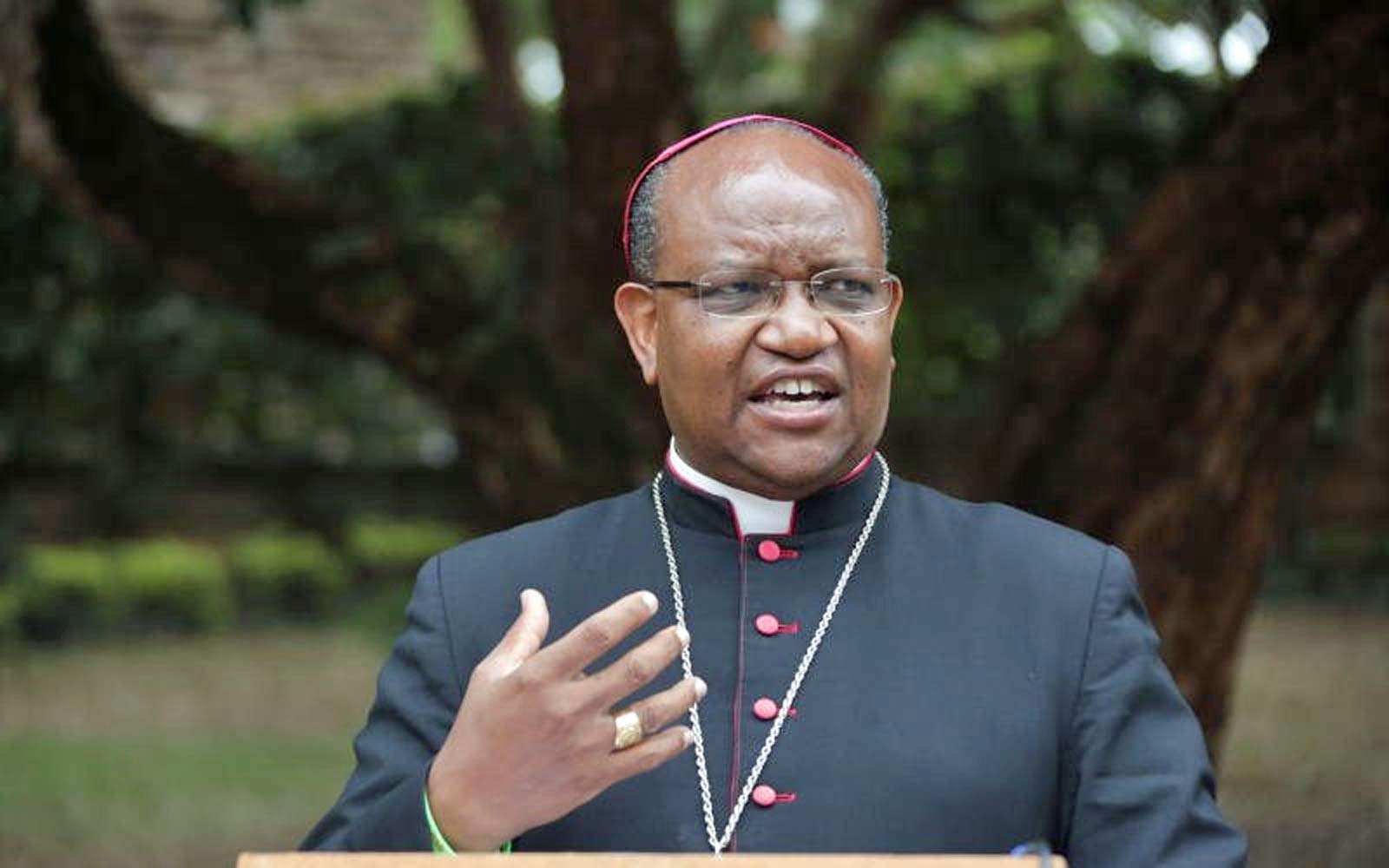The Kenyan Conference of Catholic Bishops has condemned a Supreme Court of Kenya ruling allowing the registration of organizations that seek to advocate for and support LGBT people. The condemnation is in stark contrast to statements from the Pope that have supported decriminalisation of homosexuality and tolerance for queer people.

Archbishop Anthony Muheria of Nyeri: “The acts of homosexuality can never be acceptable.” (Photo courtesy of StandardMedia.co.ke)
Mwwakilishi, a U.S.-based publication for diaspora Kenyans, reported:
The Kenya Conference of Catholic Bishops (KCCB) has called on the Supreme Court to rescind its ruling allowing the registration of Lesbian, Gay, Bisexual, Transgender, and Queer (LGBTQ) lobby groups.
The bishops condemned the ruling, saying it promotes homosexuality, which is against the constitution and moral values of the people of Kenya.
“We fault the determination of the Supreme Court of Kenya and declare it as an effort towards the promotion of the LGBTQ ideology which seeks to destroy life. It is an attack on humanity,” KCCB said in a statement.

Pope Francis: “Persons with homosexual tendencies are children of God. God loves them. God accompanies them … condemning a person like this is a sin. Criminalising people with homosexual tendencies is an injustice.” (Andrew Medichini photo courtesy of AP)
“This ideology is an attempt to undermine the family and cultural values which are rooted in the very nature of humankind. It also undermines the dignity of life which is at the core of our beliefs as a nation,” it added.
The Catholic bishops called upon Kenyans to stand firm against the promotion of same-sex relationships as they seek to destroy family values and Christian dignity.
The clerics rallied institutions and organizations to join the push for a review of the ruling.
“We insist that the Supreme Court of Kenya reviews this ruling, and determine that an association that seeks the promotion of illegal and immoral actions be overturned,” they added.
In a ruling dated 23 February, the Supreme Court of Kenya stated that denying LGBTQ persons the right to register as an NGO was discriminatory and against the constitution, which grants every individual the right to freedom of association.
“The Court determined that the use of the word “sex” under Article 27(4) does not connote the act of sex per se but refers to the sexual orientation of any gender, whether heterosexual, lesbian, gay, intersex, or otherwise. The court held that the word “including” under the same Article is not exhaustive, but only illustrative and would also comprise “freedom from discrimination based on a person’s sexual orientation,” the Supreme Court judgement reads in part.
Source: African Human Rights Media Network member Erasing 76 Crimes.
COMMENTS